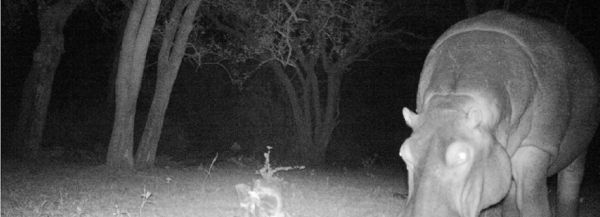This is what Leiden researcher Michiel Veldhuis, from the Institute of Environmental Sciences, and a group of international colleagues have discovered. The research was published today in Nature Ecology & Evolution.
Africa has the greatest diversity of mammals in the world, and its climate is warming up faster than in the rest of the world. ‘With rising temperatures, the window of time in which herbivores can avoid both the heat and the animals that prey on them is increasingly small,’ Veldhuis explains. It is cool enough to graze at night, but if herbivores live in an area with lions – which are also mainly active during the cool nights – they are forced to forage for food at hotter times of the day. This discovery means that climate change affects not only individual species but also the relationships between species.
Continue reading at Leiden University
Image via Leiden University


